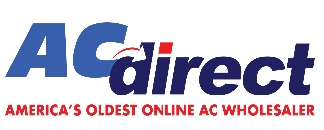When should I add a 'hard start' to my central air conditioner?
-
 By
Michael Haines
By
Michael Haines
- Jun 10, 2024

Written by Michael Haines 06/10/2024 You typically don't need to add a hard start kit to your central air conditioner unless you're experiencing trouble starting it. Hard start kits are designed to give your compressor an extra boost to get it going, and they are usually only necessary in specific scenarios.
Hard Starting Kits and Your Central Air Conditioning
If your AC unit struggles to start, you might hear it click on and then immediately shut off, or it might hum without beginning to cool. Additionally, if your air conditioner trips the circuit breaker when it tries to start, this could indicate that the compressor is drawing too much current at startup. In such cases, a hard start kit can help by reducing this current draw.
However, it's important to understand that a hard start kit is not a long-term solution. It acts more like a jump start for your car, providing a temporary fix to get your AC running again but not addressing the underlying issue. If your AC requires a hard start kit to operate, it's best to call a technician to diagnose the real problem. For older AC units, particularly those over 10 years old, a hard start kit might offer a short-term remedy, but it’s often more practical to consider replacing the unit altogether due to declining efficiency and reliability.
Common Symptoms Indicating the Need for a Hard Start Kit
When an air conditioner is struggling to start, there are several symptoms you might notice. Strange noises, such as clicking or humming, can indicate that the compressor is having difficulty starting. These noises typically occur because the compressor is attempting to start but lacks the necessary power to do so.
Additionally, you might observe your lights dimming or flickering when the AC unit turns on, which suggests that the compressor is drawing too much current from your electrical system. This excessive current draw can also cause your circuit breaker to trip, preventing the AC from starting at all.
Short cycling is another common issue that indicates the need for a hard start kit. Short cycling occurs when the AC unit turns on and then quickly shuts off, failing to complete a full cooling cycle. This not only reduces the efficiency of your cooling system but also increases wear and tear on the compressor.
Homes with low or inconsistent voltage, multiple AC systems running simultaneously, or long refrigerant lines, such as in multi-story buildings, might also benefit from a hard start kit. These conditions can make it more challenging for the compressor to start, necessitating the additional boost provided by a hard start kit.
Understanding the Role of a Hard Start Kit
A hard start kit essentially gives your air conditioner's compressor an extra "kick" to help it start. It consists of a capacitor and a relay, which work together to provide the additional power needed for the compressor to overcome initial resistance and start running.
This boost is particularly useful in situations where the compressor is old or struggling due to other mechanical issues. By reducing the amount of time the compressor spends trying to start, a hard start kit can also help reduce wear and tear on the system, potentially extending its lifespan.
However, it's crucial to remember that while a hard start kit can provide a temporary solution, it doesn't fix the underlying problems causing your compressor to struggle. Issues such as worn-out components, refrigerant leaks, or electrical problems need to be diagnosed and repaired by a qualified HVAC technician. Ignoring these issues and relying solely on a hard start kit can lead to more significant and costly repairs down the line.
When to Consider Adding a Hard Start Kit
Adding a hard start kit to your AC unit should be considered in specific situations. If your AC unit is older, typically over 10 years old, a hard start kit might be a useful temporary fix. Older units often have worn-out components that make it difficult for the compressor to start, and a hard start kit can provide the necessary boost to get the system running.
However, for older units, it's also worth considering whether replacing the entire unit might be a more practical and cost-effective solution in the long term. Newer, more efficient models can provide better performance and lower energy costs.
If your unit is relatively new but experiencing starting issues, it might still be under warranty, and you should contact the manufacturer or installer before adding a hard start kit. Many modern air conditioners come with built-in hard start devices, so additional kits may not be necessary. Consulting with a professional can ensure that any modifications made to your system are appropriate and won't void your warranty.
Benefits of Using a Hard Start Kit
Using a hard start kit can offer several benefits, especially for older AC units. One of the primary advantages is the immediate improvement in the starting reliability of your air conditioner.
By providing the necessary boost to get the compressor running, a hard start kit can reduce the frequency of starting failures and prevent the unit from short cycling. This can enhance the overall performance of your cooling system, ensuring that your home remains comfortable during hot weather.
Another significant benefit is the potential extension of your compressor's lifespan. Frequent starting failures and short cycling can cause excessive wear and tear on the compressor, leading to premature failure. By reducing the strain on the compressor during startup, a hard start kit can help prolong its life, delaying the need for a costly replacement. Additionally, by improving the efficiency of your AC unit, a hard start kit can help reduce your energy consumption and lower your utility bills.
Potential Drawbacks of Hard Start Kits
While hard start kits can be beneficial, they are not without potential drawbacks. One concern is that they can mask underlying problems with your AC unit. If your compressor is struggling to start due to mechanical or electrical issues, using a hard start kit might temporarily alleviate the symptoms without addressing the root cause. This can lead to more severe problems in the future if the underlying issues are not properly diagnosed and repaired.
Another potential drawback is that the additional boost provided by the hard start kit can put extra strain on other components of your AC system. Over time, this added strain can lead to increased wear and tear on the compressor and other parts, potentially shortening the overall lifespan of your system. Therefore, it's essential to use hard start kits judiciously and consult with a professional HVAC technician to ensure that they are an appropriate solution for your specific situation.
Installation and Maintenance of Hard Start Kits
Installing a hard start kit should be done by a qualified HVAC technician. While the process might seem straightforward, it involves working with electrical components and can be hazardous if not done correctly. A professional technician can ensure that the hard start kit is installed properly and safely, minimizing the risk of damage to your AC unit or injury to yourself.
Once installed, it's important to monitor the performance of your AC unit and the hard start kit. Regular maintenance of your air conditioning system, including cleaning and inspecting components, can help ensure that the hard start kit continues to function effectively.
If you notice any changes in the performance of your AC unit or if the starting issues persist, it's crucial to have a technician re-evaluate the system to determine if additional repairs or adjustments are needed.
Long-Term Solutions for AC Starting Issues
While a hard start kit can provide a temporary solution to starting issues, it's important to address the root cause of the problem for a long-term fix. Regular maintenance of your air conditioning system is essential to keep it running efficiently and prevent starting problems. This includes cleaning or replacing filters, checking refrigerant levels, and inspecting electrical components for signs of wear or damage.
In some cases, upgrading to a newer, more efficient AC unit might be the best long-term solution. Modern air conditioners are designed with advanced technology that improves efficiency and reliability, reducing the likelihood of starting issues. If your current unit is old and frequently requires repairs, investing in a new system can provide better performance, lower energy costs, and greater peace of mind.
When should I add a 'hard start' to my central air conditioner?
Adding a hard start kit to your central air conditioner can be a useful temporary solution for starting issues, particularly in older units or situations with low voltage or long refrigerant lines. However, it’s important to understand that a hard start kit is not a long-term fix and does not address the underlying problems causing the compressor to struggle.
Consulting with a qualified HVAC contractor is essential to diagnose and repair the root cause of the issue, ensuring that your AC system remains efficient and reliable. Regular maintenance and, when necessary, upgrading to a newer unit can provide the best long-term solution for maintaining a comfortable and energy-efficient home.

 and now, NASCAR Racing Sponsor
and now, NASCAR Racing Sponsor










